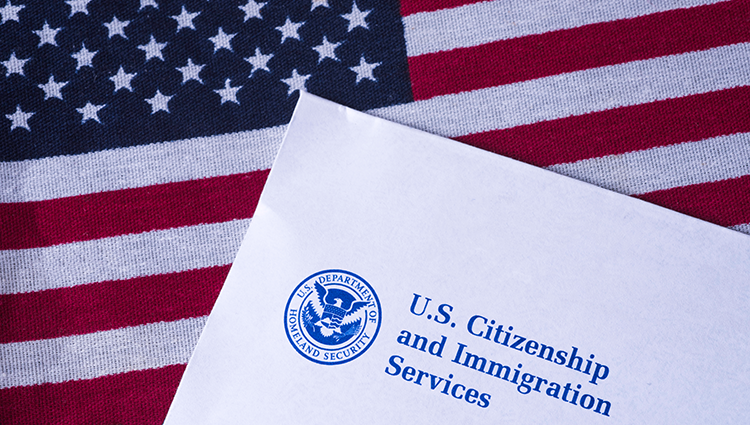ABA Voices Concerns Over Proposed Immigration Reform
January 17, 2025, 9:35 a.m. CST
Image from Shutterstock.
The American Bar Association (ABA) has raised alarms regarding a proposed immigration bill, S.5, known as the Laken-Riley Act. The organization is urging U.S. senators to oppose this legislation, emphasizing that it would have serious implications for due process and the rights of noncitizens in the United States. The ABA’s strong opposition was articulated within a letter dated January 16, 2025, authored by ABA President Bill Bey.
Key Provisions of the Laken-Riley Act
At the forefront of the ABA’s critiques are provisions that mandate the detention of noncitizens who have been arrested, charged, or convicted of certain “low-level crimes,” including robbery and shoplifting. Under this legislation, these individuals would be held indefinitely, without the ability to post bail. This lack of opportunity not only raises concerns about basic civil liberties but also poses significant questions about the fundamental legal principle of presumption of innocence, which is a cornerstone of the U.S. justice system.
Concerns About Due Process and Legal Rights
Bill Bey’s letter highlights that the Laken-Riley Act undermines procedural safeguards and the right to due process, principles that are intrinsic to the American legal framework. By detaining individuals without the option to secure bail, the bill effectively shifts the balance of justice and raises ethical concerns over the treatment of noncitizens in the U.S. Additionally, the ABA warns that such measures can lead to broader implications for the legal rights of all individuals navigating the justice system.
Federal vs. State Immigration Policies
Another contentious aspect of the Laken-Riley Act allows states to challenge federal immigration policies. Bey notes that this could introduce an unprecedented layer of state-level interference in immigration matters, resulting in convoluted litigation. Such a scenario could significantly hinder the federal government’s capacity to establish coherent and effective immigration strategies moving forward, potentially destabilizing the current legal landscape.
The Broader Context of Legislative Action
The urgency around the bill is underscored by the imminent Senate vote scheduled for Friday. The proposed legislation is notably framed in the context of public safety following a tragic incident that involved the death of a Georgia nursing student, allegedly at the hands of a Venezuelan man residing in the U.S. unlawfully. This backstory has fueled political momentum for the bill, which is viewed as a significant legislative push for the incoming Trump administration.
Implications for Immigration Reform
Should the Laken-Riley Act pass, it would mark a substantial victory for advocates of stricter immigration regulations. However, this potential victory also comes with heavy criticism from the ABA and civil rights advocates, who argue that it would foster an environment of fear and discrimination against noncitizens. The act could signal a troubling trend in which the rights of individuals are eclipsed by punitive measures justified under the guise of public safety.
Conclusion
The ABA’s call to action reflects a critical intersection of immigration policy and civil rights. As senators prepare to deliberate on the Laken-Riley Act, the implications of their decision resonate beyond legislative walls, reinforcing critical questions about justice, due process, and the treatment of noncitizens in America. The outcome of this bill could set a precedent for future immigration reform efforts and shape the legal landscape for years to come.
FAQs
What is the Laken-Riley Act?
The Laken-Riley Act is a proposed immigration bill that would mandate the detention of noncitizens charged with certain low-level crimes without the option for bail.
What are the main concerns raised by the ABA regarding the bill?
The ABA is particularly worried that the bill undermines the presumption of innocence, eliminates procedural safeguards, and violates due process rights.
What potential impact could the bill have on immigration policy?
If passed, the Laken-Riley Act could lead to increased state challenges to federal immigration policy, complicating the enforcement of coherent immigration regulations.
Why is the Laken-Riley Act named after a specific incident?
The bill is named after a case involving the tragic death of a nursing student, which advocates have used to emphasize the necessity for stricter immigration laws.
When is the Senate scheduled to vote on the Laken-Riley Act?
The Senate is set to vote on the bill this Friday, as indicated in recent announcements.

